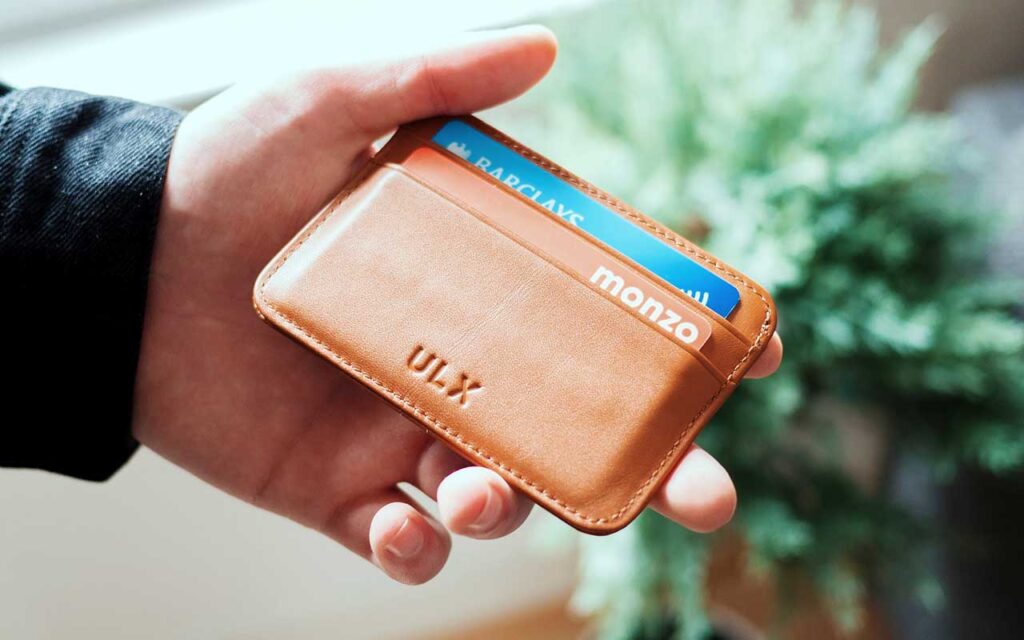Good morning venturous, wise people. Let’s talk about debt, in particular good debt vs bad debt and what is the difference between two; also, we are going to look at debt management briefly.
The purpose of this guide is to give you some insights and tips about debt and how you should look at debt and which form of debt is more beneficial for you. However, keep in mind that this is from my personal experience and what is suitable for me maybe is not for you and vice versa.
Legally, I’m obliged to ask you to read the disclaimer and to reiterate that all information found here, are for informational, entertainment or educational purposes only and should not be construed as personal financial/investment advice.
Table of Contents
What Is Debt?
I’m sure everyone heard and about it and most likely you had some debt “arise” in your lifetime. Debt takes on different forms, including credit card balances, mortgages, and car loans. It can serve a range of purposes, from covering unexpected expenses to realizing your entrepreneurial aspirations or purchasing your first home.
Consequently, not all debt should be labelled as ‘negative.’ When you consistently make timely repayments, debts can also serve as evidence of prudent financial planning and responsible borrowing.
However, if debt is not vigilantly managed or if you overextend your borrowing capacity and struggle to meet your obligations, it can evolve into ‘problematic debt.’ This may have adverse consequences on both your day-to-day financial stability and your credit rating.
Now that I’ve explained what debt is, let’s dive into the distinctions between “good” and “bad” debt and explore how it could impact your financial well-being.
What Is “Good” Debt?
Good debt, also known as wise borrowing, refers to funds utilized for either increasing your income or investing in essential items and valuable assets. A helpful question to pose when evaluating whether a debt is good or bad is: will it enhance my financial well-being over the long run?
At times, debt can even boost your credit score, provided that you can comfortably manage the payments and consistently make them on schedule. This demonstrates to lenders that you are a responsible borrower.
For debt to qualify as good, it should meet the following criteria:
- Have manageable repayment terms and reasonable interest rates.
- Offer lasting value, such as contributing to your long-term wealth or being an essential purchase, such as house mortgage.

Examples of “Good Debt”
Some examples of good debt that many people take on are:
- Business loans – many small businesses rely on borrowing in the form of business loans;
- Home mortgages – most people require a mortgage when buying a home;
- Student loans – many students borrow to fund both their university education and living costs while they are studying. The average full time maintenance loan borrowed by students in England increased by 5.1% in the last academic year, according to the UK government’s National Statistics on Student Support for Higher Education in England 2020.
What Is “Bad Debt”?
Bad debt, also referred to as unhealthy borrowing, encompasses funds borrowed for purposes that do not contribute to your financial well-being and may even harm your financial stability.
This type of debt typically results from purchases that do not increase your income, generate value, or fulfil essential needs. Bad debt often includes high-interest credit card balances, loans for non-essential items, or loans taken out without a clear repayment plan.
It can negatively impact your credit score and lead to financial difficulties if not managed properly.

Examples of “Bad Debt”
From my experience, these are the most common example of bad debt people can have:
- Credit card debt: It’s okay to use credit cards for everyday expenses if they reward you with cash back, travel perks, or other bonuses, and you pay off the full balance each month to avoid interest charges.
However, if you maintain substantial balances over time, it can lead to problems. Credit card interest rates can increase, and these rising rates add to your balances, causing your debt to grow and become unmanageable. If you’re only making the minimum required payments on growing credit card balances, you may be dealing with unhealthy debt.
- Upside-down loans: If you financed a home or another asset when prices were high, and those prices later declined and haven’t yet rebounded, you might owe more on the loan than the asset’s current value. This situation is often called being “underwater” or “upside-down” on a loan.
While waiting for the market to recover may eventually improve your situation, an upside-down loan can be financially risky if you want to borrow against your home equity (which may be non-existent or decreasing) or if circumstances like a job-related move force you to sell the property.
- Payday loans: Typically issued in small amounts, often a few hundred dollars, and requiring repayment within two weeks, payday loans target borrowers who have limited access to other credit options.
They may charge high fees, such as £12 to £39 per £100 borrowed, resulting in an annual interest rate (APR) exceeding 300%, more than ten times the highest credit card rate. Borrowers who can’t repay in full often end up taking out additional loans, falling into cycles of debt, and paying off these expensive loans.
Probably this type of debt is the one which can send you in the debt cycle and is slightly worrying that in most cases, these are only loans available to those which are already in a “not so good” financial situation.
I use to see adverts to these type of loans quite often on TV. Well, at least back in the day when I was watching TV quite regular, looking for a good old movie late in the night.
Things To Consider Before Looking At A Loan:
When taking out a loan it’s important to consider three factors:
- Will you be able to cope with the repayments?
- Is the loan providing the financial benefits that outweigh the cost?
- Are you getting the best deal possible on the loan?
Exploring and comparing various loan or credit choices prior to applying can potentially lead to more favourable interest rates and reduced charges and fees. This can transform your debt into a ‘more positive’ one as it may decrease the total cost of the loan, potentially lowering your overall debt.
For instance, if you have conducted thorough research before obtaining a mortgage, it can assist you in identifying the most suitable mortgage type and potentially securing a favourable deal with a lower interest rate.
How To Manage Your Debt
If you find yourself struggling with debt, or if debt that previously appeared manageable has turned into a financial burden due to changes in your situation, consider these steps to regain control:
1. Pay off the highest cost debt
When deciding which debts to tackle first, focus on the ones that eat up a lot of your money each month. This often includes credit cards with the highest interest rates, but a big balance on an account with a lower rate could still be a significant financial burden.
Examine the finance charges listed on your monthly statements and prioritize the accounts that take the largest chunk of your money each month. Avoid adding new charges to these accounts and work on steadily decreasing the outstanding balances.
Normally, I would tackle those with highest interest rates as in long run will save me more money.
2. Prioritize your essentials
During a crisis, either a financial crisis or not, challenging decisions will be necessary, and you will need to make adjustments to your living situation, transportation choices, and other aspects of your lifestyle.
As you navigate these choices, if you’re faced with prioritizing which debts to pay, make it a priority to maintain your mortgage or rent payments to prevent the risk of losing your housing. If your ability to work relies on having a car, strive to keep up with your auto loan payments while considering more cost-effective transportation options.
In cases where you need to limit your debt payments, aim to make at least the minimum payments on your credit cards. If you find it impossible to make certain payments, take the initiative to contact your creditors and explain your situation. You may be able to negotiate temporary payment delays or adjust the terms of your loans.
3. Alternatives to bad debt
If you’re feeling the pressure of increasing interest rates on substantial credit card debts, a debt consolidation plan that allows you to settle them using borrowed funds at a lower interest rate could provide relief for your financial situation.
The primary methods of debt consolidation are debt consolidation loans and 0% introductory APR balance transfer credit cards, which usually necessitate a good credit history. Nevertheless, be cautious about accumulating high credit card balances again or taking out additional loans once you’ve consolidated your debts.
Also, in addition, consider credit counselling. Credit counsellors can help you with making a budget and finding ways to manage your debts. They can also create a plan to manage your debts where they talk to your creditors for you. This can help you save money and give you more time to pay off what you owe.
In conclusion, it’s important to understand the concepts of good and bad debt and how they can impact your financial well-being. Good debt, when used wisely, can be a tool for achieving your goals and building your financial future, while bad debt can lead to financial instability and challenges.
It’s essential to carefully manage your debts and prioritize payments to maintain stability in your life, especially during tough times. I, for one, highly recommend getting wiser when comes to your money and budget planning – the most impactful thing we can do is to auto educate ourselves.
Remember, the choices you make about your debts should be based on your unique financial situation and goals. Always consider your ability to make repayments, the long-term benefits of the debt, and the terms of the loan or credit. Exploring various loan options and seeking advice from credit counsellors can help you make informed decisions about managing your debt effectively.



